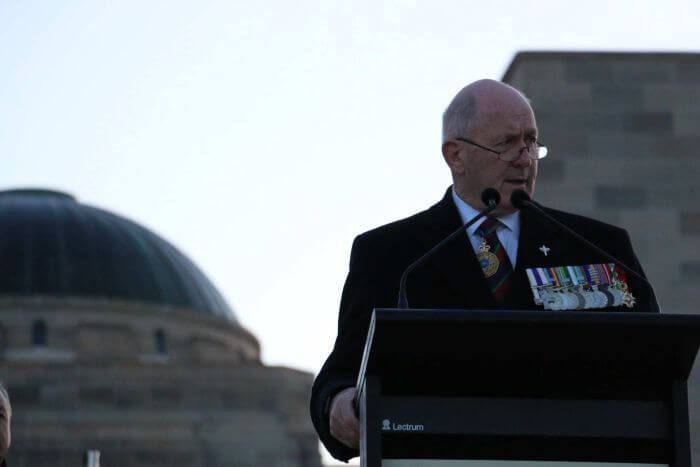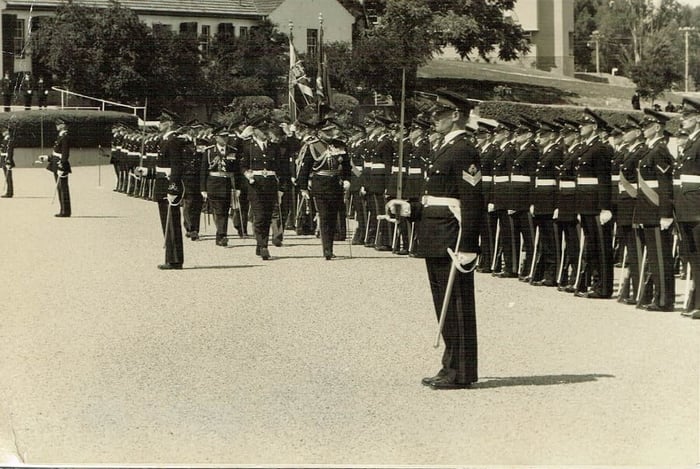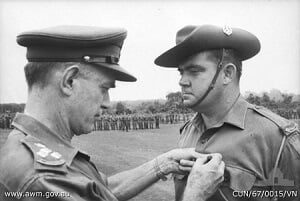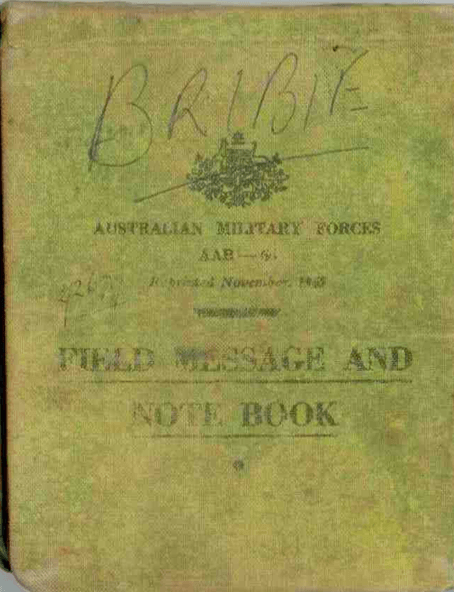
Read the Governor-General's Long Tan Speech
Speech by His Excellency General the Honourable Sir Peter Cosgrove AK MC (Retd)
On the occasion of Vietnam Veterans Remembrance Day Service, Canberra, 18 August 2016
"Good morning.
Looking out upon you, I notice the large number of you who are Vietnam veterans.
Being one of you, I think I'm entitled to say that we are a funny mob; perhaps even in some ways a bit weird - certainly we are ‘different’!
Although some 50 to 60,000 of us served in South Vietnam, in the scheme of things in Australia's military history, that pales somewhat when compared to the numbers in the first and second AIF and indeed now is just about on par with the number of young men and women of the Army, Navy and Air Force who have served over the last 13 years in the Middle East.
So, why are we different?
Well for a start, not too many returned veterans in wars before or since were sometimes booed and occasionally even reviled by their own countrymen and women (by no means all of course!) - that will make you feel a little un-loved and fragile.
Secondly, in company with Australian warriors of all conflicts, we found it a little hard to convey the sorts of experiences, operating conditions of the war and the sorts of pressures so many of us endured.
The World War I and World War II veterans equally would have found it difficult to convey these sorts of understandings to civilian Australians, but at least they tended to have lots of fellow veterans generally close at hand.
They had these informal ways to perhaps purge or mitigate some of the traumas they had internalised.
Our generation of veterans - and indeed the present day veterans who have left the services - cannot conjure up lots of nearby and available friends and neighbours who know what it was like.
So, not to put too fine a point on it, many Vietnam veterans felt alienated by the wider community from which they sprang, and in many cases by the government which sent them and even most regrettably by the ex-service organisations which did not seem to embrace them.
To me it always seemed that in this regard the most fortunate among the Vietnam veterans were those who served on for a while within the Defence Force.
For those who separated immediately upon return to Australia or very soon thereafter, classically the Nashos, they were pitchforked back into a largely unknowing and often uncaring society, in days where veteran services were somewhat rudimentary, especially for mental health care.
For those who continued in uniform, in the rough and ready way of the ranks of the military, people doing it tough adjusting back to ordinary service life in Australia were amongst friends and colleagues who knew what the pressures were like.
It was my impression that the Australian community started to understand that the political anti-war activism that was so strong and virulent in the late 60s and 70s had unintentionally marginalised and stigmatised Australians - who after all were doing the same sort of job as those wonderful men and women treated so reverently in the aftermath of the two great global conflicts.
In the great national series of "welcome home" parades around Australia on 17 October 1987, the Australian community started to put things right.
Given that my own service spanned the next ‘round’ of conflicts, I can testify that the problems redressed in 1987 did not recur and it seems to me that the Australian people quite properly no longer conflate those who serve in uniform with the policies which direct their efforts.
Now I want to inject a reminder and a plea to those present senior citizens of the wider veterans’ community, the Vietnam veterans: we are now all in our 60s and many up to 2 decades older.
Essentially we are about as old as were the World War I veterans when many of us served in Vietnam.
We are now considerably older than most of the World War II veterans were when we came back from the Vietnam War.
It rankled many of us when the elements of Returned and Services League, vastly dominated by those World War veterans, seemed somewhat lukewarm, even disparaging of the veterans of Vietnam.
That was unfortunate.
Veterans should always welcome and embrace other veterans with respect - that’s as much part of the military ethos as the prized cohesion during conflict.
But we can ensure that for the next generation of veterans - soldiers returning from Iraq, Afghanistan and across the Middle East and beyond - do not encounter indifference from any of us, now the senior citizens of the veterans community.
Let us dedicate ourselves today to that cause, as our ongoing service to our nation and to our departed colleagues as the core of our legacy.
On this day, Vietnam Veterans' Day, in this place hallowed to all Australians I extend on behalf of the nation to all Vietnam Veterans - those living and those who have passed and their loved ones - the gratitude and reverence for their service in a faraway place in a bygone age, when young men and women served so loyally and well in the finest traditions of their forbears."




















